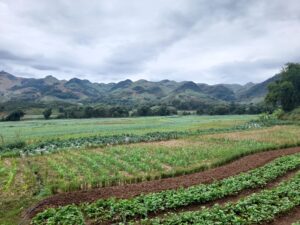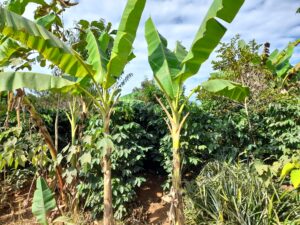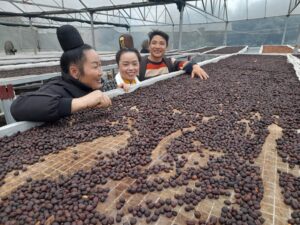Upon invitation of the CIRAD, Alexander Wezel attended to the ASEA Scientific days that took place in Hanoi, Vietnam, from 25th to 29th November 2024. A Five-days event during which the members of the ASEA network presented their latest research work in agroecology and identified new challenges and opportunities to foster the dissemination of agroforestry in Southern Asia.
The network, dedicated to preserve and enhance soil health as well to develop agroecological crop and livestock systems, aims to exchange good practices and collaborate to design and assess innovative farming system, including farmers into this.
Last but not least, an important part of the programme was devoted to the exploration and assessment of sustainable farming practices to improve food security and biodiversity conservation. The participants had the opportunity to visit farms, stations and cooperatives of different cultivation (vegetables, coffee, bananas, livestock production) in Moc Chau, Mai Son and Son La.
Alexander Wezel was expected to contribute to the discussions and exchange of knowledge, and bringing in an external expertise to the members. Based on the rich discussions held during the event, Alexander Wezel role will be to provide them further recommendations for their research and future programmes.
Alexander Wezel, back in Vietnam after 25 years working in the same region for research, could appreciate the evolution of the landscape and land use with new plantations of fruit trees, noting that maize remains important for the livestock market, and that coffee, developed more in the last 10 years, is either produced in monoculture or in an agroforestry system.



Agroecology is extending gradually, and developments encouraging, but still too limited. Also, an important work of raising awareness, sensitization and knowledge creation and sharing remain to be done to make agroecology adopted at all levels, farmers, stakeholders, but also taken more up by policy makers.
